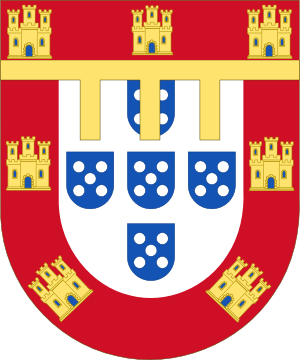Princess of Portugal on:
[Wikipedia]
[Google]
[Amazon]
 Hereditary Prince of Portugal (
Hereditary Prince of Portugal (
 Hereditary Prince of Portugal (
Hereditary Prince of Portugal (Portuguese
Portuguese may refer to:
* anything of, from, or related to the country and nation of Portugal
** Portuguese cuisine, traditional foods
** Portuguese language, a Romance language
*** Portuguese dialects, variants of the Portuguese language
** Portu ...
: ''Príncipe Herdeiro de Portugal''), unofficially Prince of Portugal (''Príncipe Herdeiro de Portugal''), or Princess of Portugal, was the title held by the heirs apparent
An heir apparent, often shortened to heir, is a person who is first in an order of succession and cannot be displaced from inheriting by the birth of another person; a person who is first in the order of succession but can be displaced by the b ...
and heirs presumptive to the Kingdom of Portugal, from 1433 to 1645.
The title differs from the title Infante of Portugal
Infante of Portugal ( Portuguese: ''Infante de Portugal''; f. Infanta), is the royal title of the Kingdom of Portugal, granted to the sons or daughters of the King and Princes of Portugal who were not the heir to the throne. It is also used to den ...
, which is the title given to all children of the monarch except the first in the line of succession, and is often translated into English as "prince".
History
Due to English tradition introduced to the Portuguese court byPhilippa of Lancaster
Philippa of Lancaster ( pt, Filipa ; 31 March 1360 – 19 July 1415) was Queen of Portugal from 1387 until 1415 by marriage to King John I. Born into the royal family of England, her marriage secured the Treaty of Windsor and produced severa ...
, her son King Edward sought to create a princely title for the heir apparent, much like the Prince of Wales
Prince of Wales ( cy, Tywysog Cymru, ; la, Princeps Cambriae/Walliae) is a title traditionally given to the heir apparent to the English and later British throne. Prior to the conquest by Edward I in the 13th century, it was used by the rulers ...
, to distinguish him from his siblings, who were infantes. Until that time, the heir apparent was also titled infante.
In 1433 Edward granted the title of Prince of Portugal to his eldest son, the future King Afonso V
Afonso V () (15 January 1432 – 28 August 1481), known by the sobriquet the African (), was King of Portugal from 1438 until his death in 1481, with a brief interruption in 1477. His sobriquet refers to his military conquests in Northern Africa. ...
. The monarchies of Castile, Aragon and England already had princely titles for their heirs apparent and now Portugal had one, so that foreign powers would not underestimate the prestige of the kingdom.
In 1645, the title was replaced with Prince of Brazil
Prince of Brazil ( pt, Príncipe do Brasil) was the title held by the heir-apparent to the Kingdom of Portugal, from 1645 to 1815. Tied with the title of Prince of Brazil was the title Duke of Braganza and the various subsidiary titles of the ...
.
List of holders
See also
*Manuel, Prince Hereditary of Portugal
Manuel of Portugal (c. 1568–22 June 1638) was the illegitimate son of António, Prior of Crato, pretender to the Portuguese throne during the 1580 Portuguese succession crisis. He secretly married in 1597 Countess Emilia of Nassau, daughter o ...
, illegitimate son of António, Prior of Crato
António, Prior of Crato (; 153126 August 1595; sometimes called ''The Determined'', ''The Fighter'', ''The Independentist'' or ''The Resistant''), was a grandson of King Manuel I of Portugal who claimed the Portuguese throne during the 1580 d ...
{{DEFAULTSORT:Prince Of Portugal